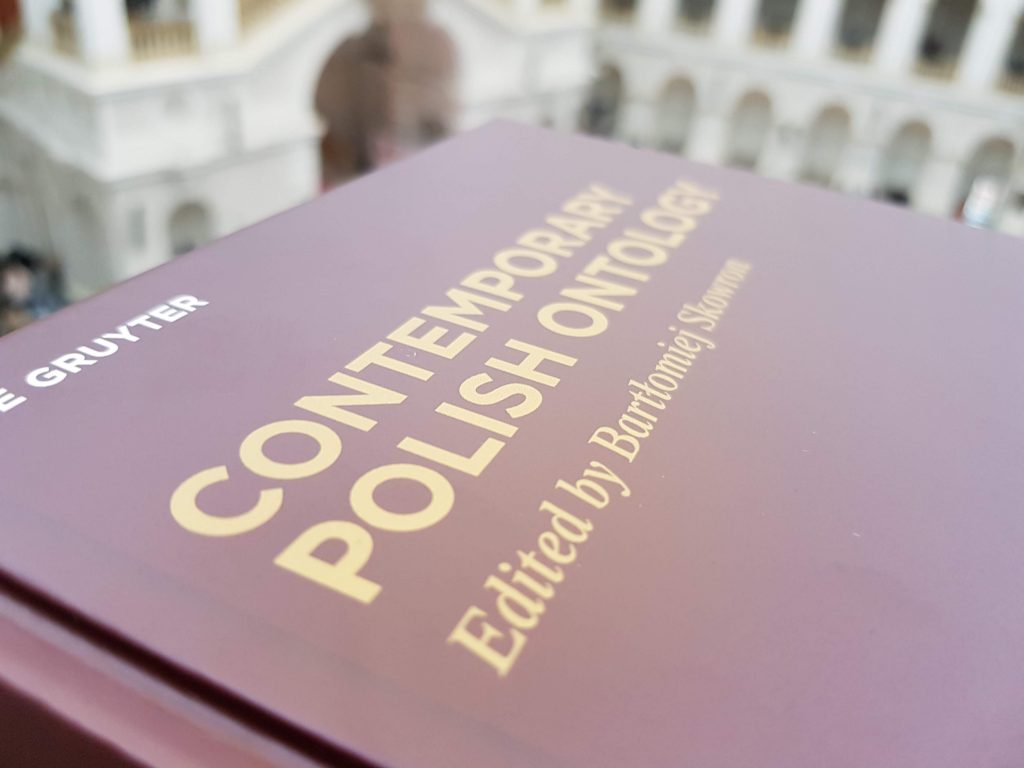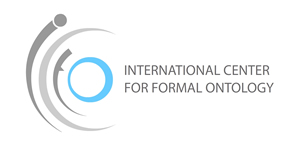
Contemporary Polish Ontology, edited by Bartłomiej Skowron.
This book is a collection of articles authored by Polish ontologists living and working in the early part of the 21st century. Harking back to the well-known Polish Lvov-Warsaw School, founded by Kazimierz Twardowski, we try to make our ontological considerations as systematically rigorous and clear as possible – i.e. to the greatest extent feasible, but also no more than the subject under consideration itself allows for.
Hence, the papers presented here do not seek to steer clear of methods of inquiry typical of either the formal or the natural sciences: on the contrary, they use such methods wherever possible. The fact that despite their adherence to rigorous methods, the Polish ontologists included here do not avoid traditional ontological issues, being inspired as they most certainly are by the great masters ofWestern philosophy – from Plato and Aristotle, through St. Thomas and Leibniz, to Husserl, to name arguably just the most important.
The subject of the present volume is no single ontological issue, in that its purpose is to demonstrate the richness of ontology as currently practised in Poland. The articles contained here touch upon and range across the most important ontological issues: substance and dispositions, persons and knowledge, as well as language, time and mathematical objects – not to mention the ontology of action and the metaphysics of possible worlds. During the very first meeting of the Polish Philosophical Society in Lvov in 1904, Kazimierz Twardowski spoke the following words: “The one and only dogma of the Society will be the conviction that dogmatism is the greatest enemy of scientific work. Just as all radii of a circle, though originating from different points around its circumference, combine and meet in its center, so we wish all directions taken by the work and philosophical views of our Society to aim at just one goal: the illumination of the truth”. The philosophical metaphor of a circle, in which various methods and issues, striving for true cognition, converge in the middle, fits well with the current book: the reader will encounter ontological analyses here that employ a wide range of methods, but which nevertheless all focus on seeking out ontological insights of the most perspicuously truthful kind.
Ontology in Poland, as in other countries, is diverse and heterogeneous – and it is surely good that it is so! This collection of articles brings together the work of ontologists who, in their deliberations, mostly make use of methods specific to either the formal sciences (mathematics and logic) or the natural ones (physics). Ontology of this kind, while approximating to a form of scientific inquiry, remains most definitely a philosophical discipline: it does not become just another part of science (even in the broadest sense of that term), but rather just uses scientific tools. This type of ontological approach is not the only one present in Poland, but it is one that in one way or another continues the tradition initiated by Kazimierz Twardowski, Stanisław Leśniewski, Roman Ingarden, Kazimierz Ajdukiewicz and Józef Maria Bocheński – one still enthusiastically continued in the opening decades of the 21st century by Bogusław Wolniewicz and Jerzy Perzanowski. We ourselves, while seeking to take this tradition still further in Poland, also form part of the increasingly popular direction known as “mathematical” philosophy (sometimes also referred to as “logical” or “formal” philosophy), which may be regarded as the sister of “analytical” philosophy in the strict sense of that term.
(from the Introduction)
The book is available on the website of the Publisher: https://www.degruyter.com/view/product/545176.

Conceptual Spaces: Elaborations and Applications Editors: Kaipainen, M., Zenker, F., Hautamäki, A., Gärdenfors, P. (Eds.)
This edited book focuses on concepts and their applications using the theory of conceptual spaces, one of today’s most central tracks of cognitive science discourse. It features 15 papers based on topics presented at the Conceptual Spaces @ Work 2016 conference.
The contributors interweave both theory and applications in their papers. Among the first mentioned are studies on metatheories, logical and systemic implications of the theory, as well as relations between concepts and language. Examples of the latter include explanatory models of paradigm shifts and evolution in science as well as dilemmas and issues of health, ethics, and education.
The theory of conceptual spaces overcomes many translational issues between academic theoretization and practical applications. The paradigm is mainly associated with structural explanations, such as categorization and meronomy. However, the community has also been relating it to relations, functions, and systems.
The book presents work that provides a geometric model for the representation of human conceptual knowledge that bridges the symbolic and the sub-conceptual levels of representation. The model has already proven to have a broad range of applicability beyond cognitive science and even across a number of disciplines related to concepts and representation.
Publisher’s website: https://www.springer.com/gp/book/9783030127992
Roman Z. Morawski, Technoscientific Research Methodological and Ethical Aspects, De Gruyter, 978-3-11-058406-6, 2019.
Unlike the bulk majority of texts on philosophy of science and research ethics, authored by professional philosophers, this book has been written by a research practitioner for research practitioners. It is distinctive by integrative approach to methodological and ethical issues related to research practice, by emphasising issues related to mathematical modelling and measurement, as well as by attempted application of engineering design methodology to moral decision making. It is also distinctive by a considerable number (over 200) specific examples, drawn from various domains of science and technology. This book is neither a philosophical treaty nor a quick-reference guide for Ph.D. students in a desperate need to make their theses satisfy minimum requirements in force in their domain of study. It is intended to be a bridge between research practice and philosophy of science: encouraging to deeper reflection, but also providing some practical advice.
The readers of this book are not expected to have any philosophical background. In case of necessity, they will be guided through sources of relevant information, very diversified in terms of language and content, and in terms of the level of advancement; a mild preference is given to the textbooks in which experts have already synthesised information from primary sources. This book can be a teaching aid for students attending classes (both lectures and tutorials) whose aims are the following: to broaden general philosophical knowledge, to identify methodological and ethical issues related to conducting scientific research, and to outline the methodology for analysing dilemmas arising in this context.
This book shows that the categorical ontology could serve as a basis for bonding mathematics, physics, and philosophy Category theory is a new formal ontology that shifts the main focus from objects to processes. The book approaches formal ontology in the original sense put forward by the philosopher Edmund Husserl, namely as a science that deals with entities that can be exemplified in all spheres and domains of reality. It is a dynamic, processual, and non-substantial ontology in which all entities can be treated as transformations, and in which objects are merely the sources and aims of these transformations.
Thus, in a rather surprising way, when employed as a formal ontology, category theory can unite seemingly disparate disciplines in contemporary science and the humanities, such as physics, mathematics and philosophy, but also computer and complex systems science.
The book is edited by Marek Kuś and Bartłomiej Skowron and is available on the publisher’s website: https://www.springer.com/gp/book/9783030308957.
God, Truth, and other Enigmas, M. Szatkowski (ed.), Philosophical Analysis, De Gruyter Ontos, 2015.
http://www.degruyter.com/view/product/455638
The book God, Truth, and other Enigmas is a collection of eighteen essays that fall under four headings: (God’s) Existence/Non-Existence, Omniscience, Truth, and Metaphysical Enigmas. The essays vary widely in topic and tone. They provide the reader with an overview of contemporary philosophical approaches to the subjects that are indicated in the title of the book.
Substantiality and Causality, M. Szatkowski, M. Rosiak (eds.), Philosophical Analysis 60, De Gruyter Ontos, 2014.
http://www.degruyter.com/view/product/432243
The content of the volume is divided as follows: after presenting two rival approaches to substantiality and causality: a traditional (ontological) view vs. a transcendental one (Rosiak) there follow two sections: the first presents studies of substance as showing some causal aspects (Buchheim, Keinänen, Kovac, Piwowarczyk), whereas the other contains investigations of causality showing in a way its reference to the category of substance (Kobiela, Meixner, Mitscherling, Wroński). The last, short section contains two studies of extension (Leszczyński and Skowron) which can be regarded as a conceptual background of both substantiality and causality. The book gives a very colourful picture of the discussions connected with substantiality and causality which may be of potential interest for the readers.




